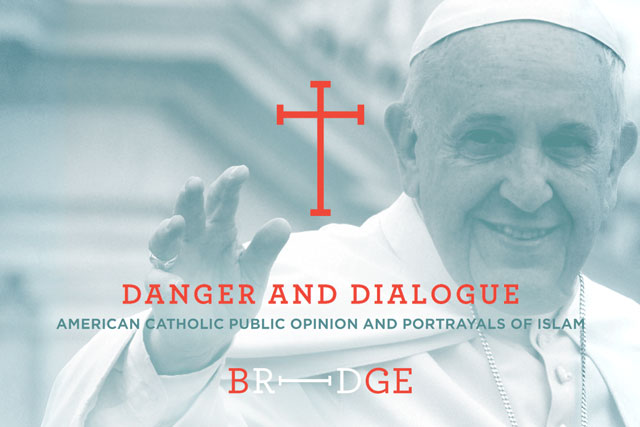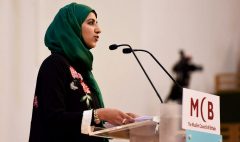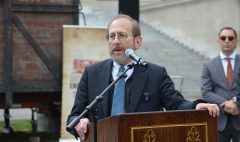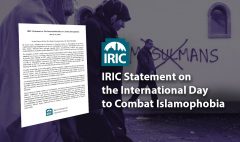Only 14 percent of US Catholics have a favorable opinion of Muslims
October 1, 2016 2024-03-18 1:45Only 14 percent of US Catholics have a favorable opinion of Muslims

Only 14 percent of US Catholics have a favorable opinion of Muslims
Most Catholics do not personally know a Muslim; and U.S. Catholics are less likely than the average American to know one. Three in 10 American Catholics do know at least one Muslim person, whereas in the general U.S. population four in 10 do. That is one set of the disturbing facts uncovered in “Danger and Dialogue: American Catholic Public Opinion and Portrayals of Islam,” a report issued Sept. 12 by the Bridge Initiative of Georgetown University’s Center for Muslim-Christian Understanding.
Other troubling findings include the belief, held by 83 percent of Catholics, that dialogue is undertaken to convert Muslims to Christianity and the disclosure of high quotients for Islamophobia in the Catholic media and among best-selling Catholic authors. The report confirms that face-to-face encounters are key to building positive attitudes between strangers. One-third of Catholics who know Muslims met them in the workplace. Almost a third claim them as friends, and 7 percent say they are family members. But overall only 14 percent of Catholics have a favorable attitude toward Muslims.
Veterans of interreligious dialogue comment that the secret to successful interreligious dialogue is spiritual friendship. While spiritual friendship has been especially prevalent in inter-monastic dialogue, it is also found in gatherings of Catholics and Muslims.
At Saint Paul’s Church in Cambridge, a few blocks from Harvard Yard, a Catholic-Muslim prayer and support group called a Badaliya meets to pray, study and converse with one another. It is part of a renewal of a post-9/11 revival of the Badaliya movement founded by Louis Massignon and his disciple Mary Kahil in the 1930s.
Another Catholic movement that has had enduring relations with American Muslims is Focolare. Its ties with the American Society of Muslims (formerly the Nation of Islam) and its leader Warith Deen Mohammed arose out of Focolare’s charism to unity. In the context of violent persecution of Christians, Muslims and others across the Middle East in 2014, the U.S. bishops’ Committee on Ecumenical and Interfaith Affairs said, “Through building networks of dialogue [we] can overcome ignorance, extremism, and discrimination and so lead to friendship and trust with Muslims.”
The Bridge Initiative is a program of Georgetown University’s al-Alaweed Center for Muslim Christian Understanding. The data was gathered in opinion polls by CARA, the Center for Applied Research in the Apostolate, also located at Georgetown. The analysis and presentation are the work of the Center’s staff and especially of analyst Jordan Denari Duffner.
Continue reading at: The Berkley Center for Religion, Peace, and World Affairs at Georgetown University








